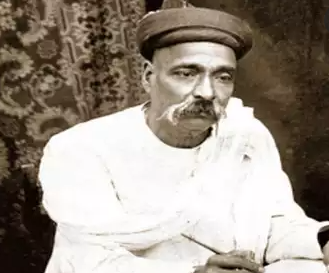Lokmanya Tilak’s 101st death anniversary comes at a time when his approach towards various social, cultural and even economic issues needs to be recalled in the contemporary context. But it is also true that ideas and thoughts of a leader are reflected through his personality, his leadership style and the rapport he is able to build with the people. Lokmanya Tilak comes across as one of the tallest leaders of his times, who had creatively crafted his social activism. He was an ace advocate who used constitutionalism as a weapon and adroitly showed mirror to the British rulers. And although he was a practising pleader, the real warrior in him came through his journalism and the way he weaponised his pen to awaken a dormant society. All he could achieve because of principles dear to him, his passion and also his perseverance, with his distinct persona as the tallest leader of his times at the centre of all these.
Tilak was known for his strong views and aggressive articulation. But strong opinions don’t need one sacrifice the element of humility. What Barrister M R Jayakar a giant public figure of those days in Mumbai, has said about Tilak is a testimony to this. Recalling Tilak, once he wrote : ‘The point that struck me in Lokmanya Tilak’s career as evidencing his all absorbing patriotism is the absolute absence of all self-consciousness and egotism. In his enthusiasm for the cause, he forgot, for the moment, that he was a great man’. He further writes: ‘ Tilak as a patriot was to me a stern, unbending and. Hiding personality ; but Tilak as a polished, cultured and learned Hindu is full of ineffable charm and sweetness, the sources of which were apparent only to those who held the key to that store house.’ Joseph Baptista, Member of the Congress Deputation in 1919, who accompanied Tilak to London, had the same experience. He wrote that during his stay in London, the politicians with whom Tilak met were rather disappointed as : ‘They expected to cross swords with a gigantic pugnacious demagogue, stiletto in hand. They found a fragile philosopher appealing to reason and history.’ B Satyamurti, a key Swaraj Party leader from Madras also shares the same impressions about Lokmanya. In his memoirs, he writes: ‘ His (Tilak’s) simplicity, easy accessibility and affability of temper impressed me most. Tilak, though he was uncompromising in his principles, had a keen sense of humour and no personal ill-will against anybody’.
True, Tilak was a politician. But first, he was a scholar to the core. Satyamurti, who traveled with Tilak to London on board S S Egypt for almost three weeks, has written as to how his scholarship impressed many European co-travellers. He reminisces, ‘ Many a member of the audience felt and told me. “What Indian politics has gained in Tilak, scholarship and research have lost.”
Tilak was a strategist with who had a comprehensive understanding of what needs to be done in England to build a strong case for India’s independence by creating positive vibes about India and Indians. C F Andrews, English philanthropist and a friend of India had written about Tilak’s interaction with poet Rabindra Nath Tagore, and how Tilak tried to convince Tagore to go to London with all support coming from Tilak himself. When Tagore pleaded that he cannot do any political work, how Tilak responded was remarkable. Lokmanya said “ I do not want you to do any political work, but simply to be present in England this year; because it is necessary that the name of India should stand high in the minds of the English people and your presence will effect this object”.
Tilak was a democrat who believed in people’s power. He had an unflinching confidence in the strength of the people of India. V Venkateswara Sastrulu, a Madras resident who had worked with Lokmanya has written very eloquently about Tilak’s confidence in his countrymen. He writes; ‘ Even in those days when the country and especially his presidency was full of doubting Thomases like Mehta and Gokhale, Mr Tilak has proclaimed his faith that his countrymen could rule themselves much better than foreigners. Courage he had and had it abundantly. Courage to suffer hardships, courage to suffer any amount of odium in the discharge of what he considered his duty and courage at all costs was his outstanding virtue.’
Values that were close to Tilak’s heart endeared him in London too. Daily Herald, on May 5, 1919 wrote “ Mr Tilak was responsible for the birth of a Nationalist feeling in India which had grown to such an extent that now it had transcended all religious differences and wielded together in one piece an idealistic movement”.
After his demise, what Dr J T Sunderland, Editor of Young India ,America wrote captures the essential contribution of Lokmanya Tilak. He wrote, “ What is Mr Tilak’s place in the world? It is extravagant to say that it is by the side of Mazzini and the leaders of America’s struggle of independence… Patrick Henry, Samuel Adams, Jefferson and Washington? None of these men, whom all the world honours, toiled more historically or more self-sacrificingly for their country’s advancement and freedom than did this great son of India’.
Source:https://timesofindia.indiatimes.com/blogs/voices/recalling-lokmanya-tilak-today/



No comments:
Post a Comment